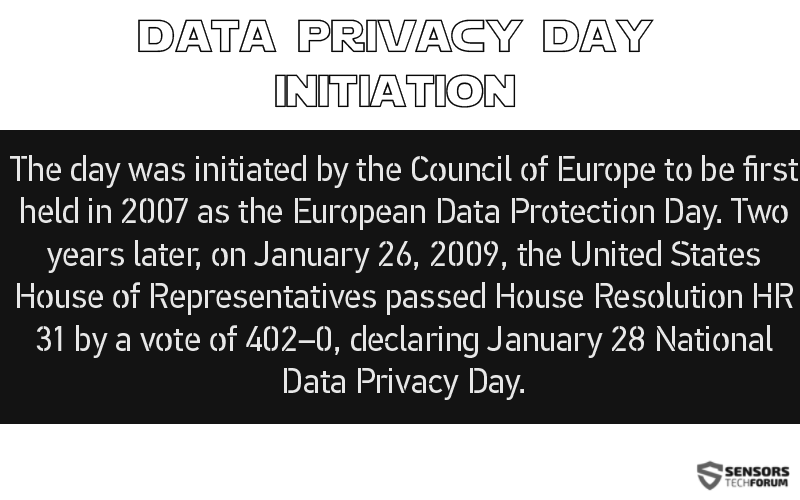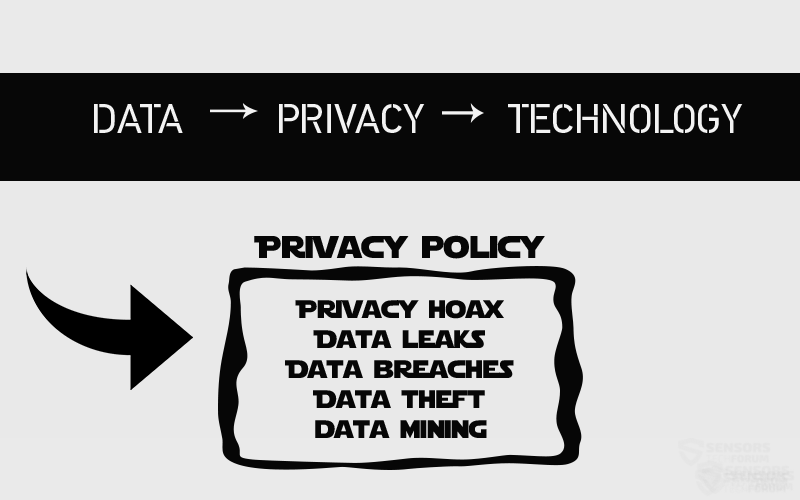The importance of holidays is proverbial on a global level. Some holidays, however, shouldn’t be celebrated in an intoxicated state. Some holidays require alertness and are not all about the fuss. Let’s talk Data Privacy Day.
More IT Celebrations: Computer Security Day
Data Privacy Day: The Story
This most important day in modern history is also known as Data Protection Day. As you may have guessed, it’s celebrated on January 28. Data Privacy Day’s timeline takes us back to 2007. It was high time people started paying attention to the small print, wasn’t it? The devil is in the details.

Data Privacy Day, or Privacy Day for short, officially is in tribute across Europe, the US and Canada. However, we feel like as many world citizens as possible should join in and evaluate their level of privacy.
Why?
Privacy is paired with the most terrible of words:
- Privacy policy
- Privacy hoax
- Data leaks
- Data breaches
- Data theft
- Data aggregation
- Data mining
What does privacy stand for? Maybe we should just join IT Crowd’s Jen in her contemplation about the meaning of IT. Information technology is indeed the application of computers and telecommunications to store, retrieve, transmit and manipulate data… and is somehow related to Jen’s vague belief that IT means Internet Things.
IT is commonly used as a synonym for computers and networks, but it also includes other information distribution technologies. The impact of IT is colossal, not to mention that several industries are interconnected with IT:
Computer hardware, software, electronics, semiconductors, Internet, telecom equipment, engineering, healthcare, e-commerce and computer services.

Many people still don’t know what IT truly is but are quite persistent on sharing personal information without giving it a second thought.
Data, privacy, technology. They’re all interconnected, or perhaps they’re the same thing.
No wonder Privacy Day was ‘invented’. There is a continuously growing necessity of educational initiatives focusing on modern, technology-related issues. We all feed off the Internet, and it’s only natural that the Internet is feeding off us. Let’s spell it out: privacy comes at a certain price, even though it may be smartly disguised as a free-of-charge social network or some other service we just cannot live without. Modern people are more than willing to share everything about their lives. And that’s partially the problem.
Data Privacy Day: The Initiatives
Like we said in the beginning, this day is particularly about education and promotes various events and activities towards the improvement of data protection technology. Personally identifiable information is a bargaining chip and the question certainly is who has the highest bid.

Privacy day should serve to encourage as many organizations, independent experts and average users to work together towards building a more privacy-proof environment. The Wikipedia article about Data Privacy Day says that this international celebration ‘offers many opportunities for collaboration among governments, industry, academia, nonprofits, privacy professionals and educators’, and we’d love to see easily accessible events taking place wherever needed.
Data Privacy Day: The Immediate Measures
Reading this article all the way to the end suggests that you have concerns regarding privacy, and thus you’re silently celebrating Data Privacy Day every time you’re online. The very first thing we would suggest you do is watch documentaries that shed light on current, privacy-related events. Such are Terms and Conditions May Apply, We Live in Public, Something Ventured, Revolution OS, etc. Today’s documentaries have their way of shifting opinions and presenting strong, undeniable arguments. Also, follow the news and pay close attention to data breaches in companies and service providers. Your personal information, e.g. banking details, may be involved in terrible stories. Keep track of things and never skip your daily dose of IT news.
And finally, always make sure you go through the privacy policies and terms and conditions of any online service you plan to use.


